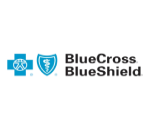801 Garden St. Suite 101 Santa Barbara, CA 93101
Drug and Alcohol Detox Facility in Santa Barbara
Start your journey
Rehabilitation programs are structured to address various stages of drug addiction treatment and recovery. Each program can function independently or as a transitional care level. Intensive treatment such as residential rehabilitation may be necessary for severe substance use, whereas less severe addictions could be managed through outpatient settings. Before enrolling in a treatment program, it is crucial to undergo drug and alcohol detoxification. After a successful detox, our addiction specialists can assist in identifying the most suitable program for your needs. Explore the range of addiction treatment programs available at Santa Barbara Recovery in Southern California.
Treating someone with a drug addiction or alcohol use disorder (AUD) varies based on individual needs. Addiction is diagnosed when using substances becomes problematic and distressing, with severity ranging from mild to severe. The level of care someone requires depends on the severity of their symptoms and other factors.
The body tries to counter the effects of the drugs or alcohol and normalize itself. It’s called the “rubber band effect” which occurs when addiction causes your brain and body to change to compensate for the substances that the body was once used to absorbing.
OUR TREATMENTS
Treatment for co-occurring disorders, also called dual diagnosis, addresses both conditions at the same time. Addiction can change the way that people think, feel, and act, while mental illness is often overlooked when treating people with drug or alcohol use disorders.
Understanding the connection between mental health and addiction is an important element of recovery here at Santa Barbara Recovery. Our aftercare program and licensed therapists help you explore mood disorders and addictive behavior, understand how they are entwined, find treatment, and take steps toward healing.
During the intake examination, the detox team will assess the level of support required for your recovery. This may involve conducting blood tests, discussing your medical and drinking history, and performing various assessments to evaluate your physical and mental well-being.
Detox support encompasses the administration of medication to alleviate withdrawal symptoms and address any other concerns that arise. The primary objective is to assist you in achieving mental and physical stability. Throughout this process, your temperature, blood pressure, heart rate, and breathing will be regularly monitored.
There’s no one-size-fits-all approach to treating the disease of addiction. When choosing a substance abuse treatment program, it’s beneficial to consider the next step of rehab. This is because breaking your addiction requires treatment, and certain programs combine both aspects. A structured approach is crucial in the early stages of addiction treatment. Our experienced medical team will prioritize your safety while ensuring your comfort to the best of their abilities. Due to the potential risks associated with withdrawal, we strongly advise against self-detoxification.
If you or a loved one is seeking help for substance abuse, luckily, our facility located in Santa Barbara, CA, provides access to high-quality levels of care. Our team will get to the root of the problem, by offering emotional and physical support, as well as address any potential complications that may be a contributing factor. We offer the following addiction treatment programs:
Addiction is a persistent illness that alters both the structure and function of the brain, impacting nearly 10% of American adults. Addiction is instigated by a relinquishment of authority over the consumption of a substance, as the brain undergoes a sequence of transformations. This disease is a cycle that targets the brain’s natural desires or reward center.
This transformation commences with the recognition of pleasure and culminates in an uncontrollable urge to engage in compulsive behavior to satisfy that craving. Attempting to quit may result in a diminished ability to manage impulses due to the grip of addiction. Addiction exerts a profound and lasting influence on the brain, which manifests in three primary ways:
In cases of drug and alcohol addiction, substances hijack the brain’s reward system, potentially leading to physical dependence. For some individuals, ceasing or reducing substance use can trigger unpleasant and, at times, hazardous physical withdrawal symptoms. These changes weaken their ability to control impulses, regardless of the negative repercussions.
Substance misuse can result in severe physical, emotional, and social difficulties. For instance, persistent drug or alcohol use can lead to unemployment, fractured relationships, and other personal failures. Consequently, these issues often contribute to increased stress and anxiety.
Addiction is not indicative of fragility, a personal defect, or a moral shortcoming. It is a prevalent affliction that impacts countless individuals spanning various age groups, backgrounds, and socioeconomic statuses. Although substance abuse lacks a singular cause, there is optimism in the fact that it can be effectively addressed through addiction treatment in many drug rehab programs and even alcohol rehabs.
It is conceivable that individuals from all age groups, diverse backgrounds, and various socioeconomic statuses can develop addictions to alcohol or drugs. While certain groups may be more susceptible than others, numerous factors contribute to the initiation of addiction.
Residential treatment, also referred to as inpatient treatment, is a highly structured program where individuals reside on-site. This type of treatment is particularly effective for individuals with moderate to severe substance use disorders. The duration of inpatient stays typically ranges from 30 to 90 days, although it can be longer or shorter depending on the individual’s specific circumstances. During their stay, clients can expect to engage in a variety of activities, therapies, and treatments.
These different components work together to provide clients with the best chance of recovery and minimize the risk of relapse. When someone enrolls in a residential treatment program, they commit to living on campus 24/7 and adhering to all the rules and regulations. The program’s structure and guidelines are designed to equip individuals with the necessary tools to combat relapse and gain a deeper understanding of their challenges and strengths. By gaining insight into these aspects, we can effectively assist our clients in addressing issues related to unhealthy relationships and mental health problems.
Outpatient treatment is a less intensive addiction treatment program compared to residential, PHPs, and IOPs. Many individuals utilize general outpatient programs as a means of continuing their care after undergoing more intensive forms of treatment. Outpatient programs are particularly beneficial during a client’s transitional period. Research indicates that a significant number of people are prone to relapse after treatment due to the challenges associated with returning home and readjusting to a normal life. Clients opt for outpatient programs to further enhance their skills in combating relapse. The additional one to three sessions per week can significantly impact the likelihood of achieving long-term recovery as opposed to experiencing a relapse.
The duration of these sessions typically lasts around 90 minutes, depending on the specific program. At this stage of the care continuum, clients are self-reliant and capable of embarking on their sober day-to-day lifestyle. Throughout the transition, the ongoing counseling and therapeutic support provided by our outpatient program will play a crucial role in ensuring a fulfilling and relapse-free future.
A day treatment or partial hospitalization program (PHP) allows individuals to reside at home while receiving treatment at a hospital or clinic for a minimum of five days per week. This type of program can serve as an alternative to inpatient or residential treatment, or as a transitional step from such programs.
Partial hospitalization programs are part-time treatments that do not require clients to live on-site. In some cases, individuals enrolled in a PHP may choose to stay at a sober living home. Clients attending PHPs typically visit the treatment facility multiple times a week for a significant portion of each day. Most PHPs require a commitment of 25 to 30 hours per week. Compared to outpatient programs, PHPs generally provide a more hands-on and intensive approach. In light of COVID-19 precautions, many programs now offer telehealth options.
Intensive outpatient programs (IOPs) serve as a transitional step following PHPs, allowing individuals to maintain their progress after completing an inpatient stay. During an IOP, clients dedicate approximately 15 to 20 hours per week to treatment at the center. Due to the reduced frequency of meetings and treatments, IOPs typically have a longer duration. Nonetheless, intensive outpatient programs prove beneficial for individuals who need to balance work or home responsibilities while actively participating in their treatment.
IOPs encompass a structured series of visits that offer more comprehensive and extended care compared to traditional outpatient programs. This option can be pursued following partial hospitalization, detoxification, or residential rehabilitation, and may even serve as a preventive measure to avoid the need for such services.
Sober Living, also known as an aftercare program, offers a range of advantages to our clients’ ongoing care. We must ensure that once our clients complete their treatment, they can return to a secure and nurturing environment to continue their journey toward recovery. Our aftercare programs provide various benefits, including:
Furthermore, sober living homes serve as an ideal transitional setting for individuals readjusting to independent sober living. Within these supportive communities, our clients are surrounded by individuals facing similar circumstances and going through the same stage of recovery.
When someone ceases using substances, a response is created due to the brain and body overcompensating, resulting in the development of mental, physical, and psychological side effects called withdrawal symptoms. Withdrawal reduces one’s capacity to cope with stress and weakens the immune system.
When an individual who is dependent on alcohol abruptly ceases consumption, typically within 6-24 hours after their last drink, they may experience the onset of withdrawal symptoms. It is important to note that these symptoms can manifest even when alcohol is still present in their bloodstream. The severity of withdrawal symptoms can vary, ranging from mild to significantly more severe. The duration of your symptoms may extend for a week or longer, with the peak intensity typically occurring within 24-72 hours. By availing yourself of ample assistance, you are more likely to successfully adhere to a detox program. Some of the potential symptoms include:
If you rely on alcohol to maintain a sense of normalcy in your body, it is indicative that you may require assistance. Overcoming the detoxification process is not solely a matter of willpower, and abruptly stopping without medical intervention is strongly discouraged. In certain instances, withdrawal can pose a significant threat to your life. Even when the severity is less pronounced, it remains a formidable challenge. In other words, withdrawal symptoms can be uncomfortable and sometimes dangerous if left untreated. This is why the medical detox process is crucial before beginning treatment.
A rehab program is designed to provide you with the necessary support to navigate through the withdrawal process. This often involves the administration of medication to alleviate symptoms, along with comprehensive care for both your physical and mental well-being.
Our treatment facility offers clients a truly optimal way to recover. Unlike treatment centers in major cities, our Santa Barbara location provides a more serene and relaxing environment. Despite being situated away from the hustle and bustle, we are still able to assemble a team of addiction treatment professionals who are among the best in their respective fields. Our clients have the privilege of working with world-class specialists in a tranquil setting that minimizes distractions.
We offer a range of treatment options that combine evidence-based therapies with holistic strategies. Our addiction therapy services include:
Our Partners
We work with all major Out-of-Network Insurance Providers, Private Pay and Scholarship Opportunities. Drug and alcohol rehab should be accessible to everyone. At Santa Barbara Recovery, we work with most insurance plans to cover the costs of treatment.




